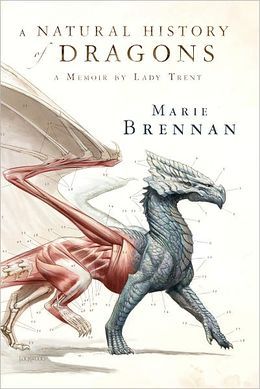"My First Summer in the Sierra" by John Muir
Hopefully the name John Muir should be ringing a bell for you somewhere back in your brain. John Muir was a Scotsman by birth but his family moved to the United States (Wisconsin, in fact) in 1849. He had always loved being outside and exploring nature. He even walked from Indiana to Florida once! (That's over a thousand miles). He became a great advocate for conservationism, the National Parks and even founded the Sierra Club.
The book "My First Summer in the Sierra" is a journal of John's first summer in the Sierra mountains of California. He was hired by a friend to help keep an eye on the friends sheep and the shepherd that had also been hired. (The shepherd doesn't sound like a particularly dedicated fellow). Though John has no experience with sheep his friend assures him that as long as he keeps one eye on the sheep and their shepherd he is free to explore and continue his studies of the nature around him.So with a friend's St Bernard named Carlo, John Muir spends his summer exploring these lovely landscapes.
Here's a few quotes that I liked:
-"Only spread a fern frond over a man's head and worldly cares are cast out, and freedom and beauty and peace come in".
-"Sheep, like people are ungovernable when hungry". (He also refers to the sheep as wool bundles which I thought was cute)
So John +Sierra Mountains= Enduring love affair.
I gave this book a 3 out of 5.Short and filed with lovely imagery. Makes us appreciate what we have!

"The Northern Lights: The True Story of the Man who Unlocked the Secrets of the Aurora Borealis" by Lucy Jago
Kristian Birkeland was a scientist in Norway in the late 1880s. He was incredibly gifted, but the one scientific phenomenon that really captured his attention was the aurora borealis, aka the northern lights. The mythology and local folklore that went along with this great spectacle of nature is amazing.Vikings thought that the lights were a sign from Odin marking who would die in upcoming battles Lapplanders would hid in their houses and be very quite when the northern lights happened, they thought they were the spirits of angered dead relatives. They also thought that the spirits could be vengeful, and we worried that the lights would reach down and plop of their heads to be used as balls. (The Eskimo word for aurora means "ballplayer). These people would think it crazy that people sought out these lights to watch, just for fun!
He and his team endured suspicious locals, avalanches, white out blizzards, cabin fever, and other difficulties to study these amazing lights at the top of the world. He made theories from his observations that were decades and decades ahead of their time.He is credited as the first scientist to propose an essentially correct explanation of the aurora borealis. (Though part of me really wishes that it was Odin, because that's just a great story).
In between studying the lights and being locked in his laboratory Birkeland also came up with ideas for: hearing aids for deaf people, caviar, and a very unstable sounding cannon. However, he relied on alcohol and sleeping aids more and more, which coupled with extreme paranoia, lead to a severe decline and early death.Some would say the death is suspicious. (bum bum BUM!)
Another interesting thing about this book, that doesn't really have anything to do with the lights is the relationship between Sweden and Norway.Norway wasn't always an independent country, they were managed by Sweden, and several times were on the brink of war. Birkeland was a big proponent for Norway's freedom and was thrilled when it finally happened.
I gave this book a strong 2.5 stars. It started strong, and ended strong, but towards the middle it was kind of meh. To be fair, a lot of it was because there was a lot of talk about science and patents and corporate sabotage stuff which was not as entertaining as people losing their fingers, you know?
--------------------------------------------------------------------
On an unrelated note, do you remember me talking about Books and Beverages' Inkling series featuring Screwtape Letters (refresh yourself here)? Jamie is putting up the discussion questions and her review on May 21st, so if you'd like to participate get a jump on your reading and join us!







